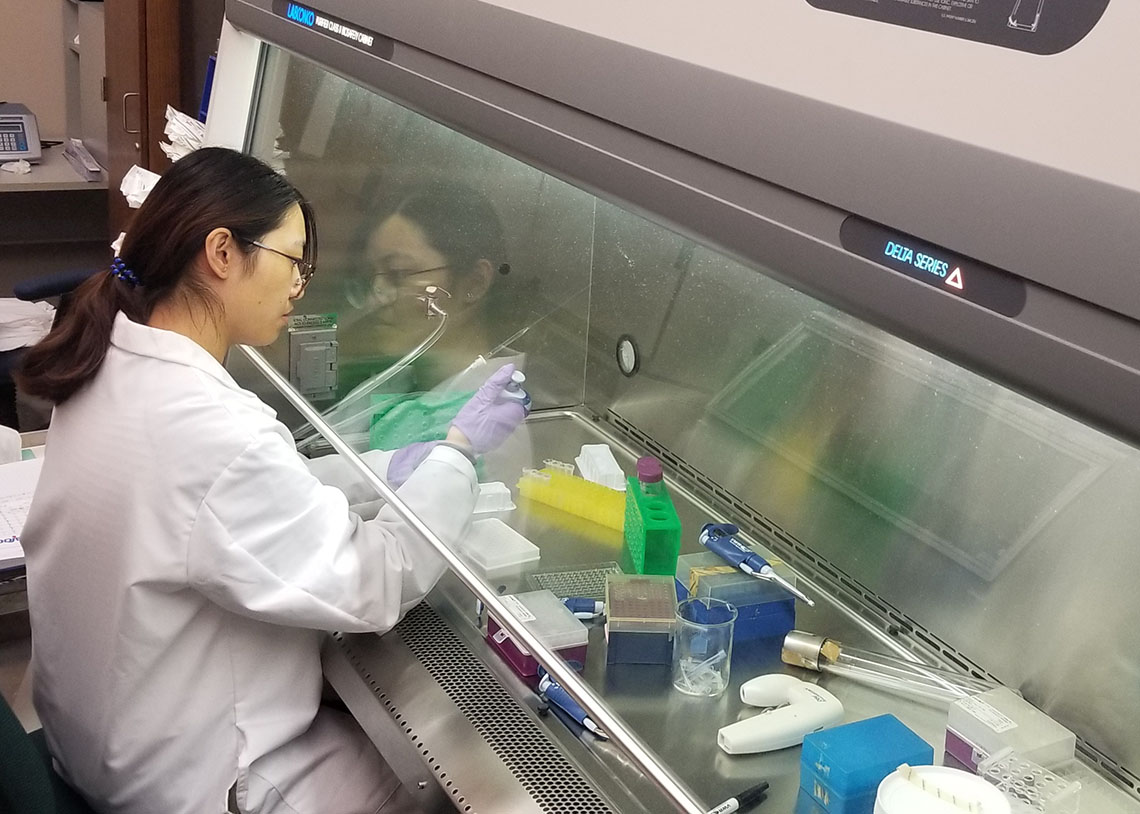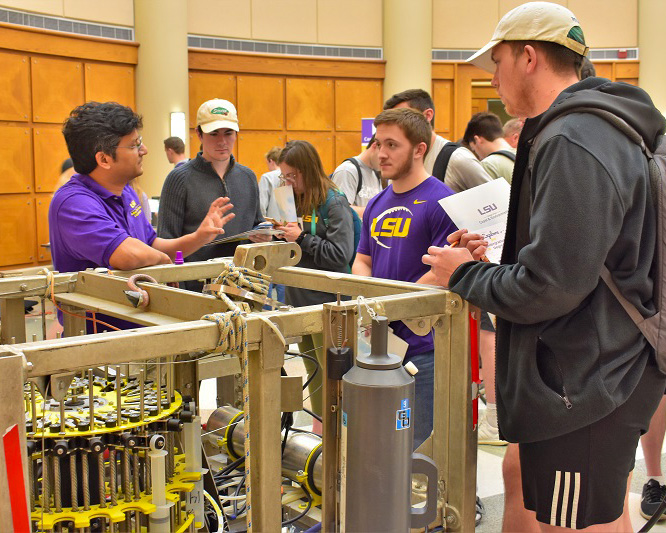Coastal Environmental Science Is Our Passion.
Welcome to Coastal Environmental Science
The Coastal Environmental Science, or CES, curriculum was developed by scientists who recognized that the most successful researchers were able think critically across a range of disciplines. Our program builds a strong foundation in the natural sciences, then combines it with studies in environmental and coastal sciences, oceanography and environmental policy. This distinctive degree empowers students to navigate the complex interactions between humans and their environments.
Graduates are prepared to create meaningful change through careers in research, conservation, policy, health or law.
Questions about the CES degree? Contact us!
Participate in groundbreaking research
Get experience working in the lab, in the field, or on technology-related projects
As early as their freshman year, students may assist in ongoing research being conducted by graduate students and faculty. By their junior and senior years, students may be working independently on their own research projects.
Our Concentrations
Students in Coastal Environmental Science (CES) can choose from one of our six concentrations while earning their degree.
To see full descriptions of each course, visit the Coastal Environmental Sciences degree page on the LSU Catalog.
We understand some of the PDFs may be inaccessible to some users with disabilities. If you experience a barrier in access due to a disability, please contact one of our advisors for prompt assistance.
Ideal for those who want to use science to make informed decisions about conservation, preservation, and sustainable environments.
- Students gain practical experience that can be applied to environmental issues.
- ACES is good for those who would like to work in the public or private sector in applied research.
Ideal for those curious about atmospheric conditions unique to coastal climates.
- Students will learn more about how the ocean, particularly the coastal ocean, interacts with the atmosphere, and about the physical, chemical and biological aspects of air pollution.
- Coastal Meteorology is good for those who would like to go on to receive an advanced degree in meteorology, atmospheric science or climatology prior to pursuing a career in weather forecasting.
Ideal for those driven by a desire to address the complex challenges faced by people and industries located in the world’s deltas.
- Students will learn about physical and biological processes in deltaic and estuarine ecosystems.
- Deltaic Sciences is good for students who want to investigate the human impact on deltas, including the effects of pollution, development, sea level rise and climate change.
Ideal for those driven by an insatiable curiosity and a love of math and science.
-
Students will use a variety of types of data collection and analytical methods to study environmental phenomena.
- ESR is good for those who plan to attend veterinary, dental or medical school, or graduate school in oceanography, marine sciences, environmental sciences, or other disciplines.
Ideal for those who are interested in the environment’s impact on the health of people and animals.
- Students can hone science related communication skills discussing topics such as water quality, disaster response and environmental exposure to human diseases.
- Environmental Health is good for those interested in the Masters in Public Health 3+2 Program.
Ideal for those who desire a deep understanding of the environment so they can create or apply laws and policies.
- Students will investigate the intersection of environmental issues and law.
- Environmental Law is good for those interested in the Environmental Law 3+3 Program
SAve time and money with our fast track degree program
3+2 Environmental Public Health
The 3+2 Environmental Public Health Program allows eligible students to receive a bachelor's degree in Coastal Environmental Science with a concentration in Environmental Health and a master's degree in Public Health in five years, instead of six.
Degrees Received
Bachelor of Science in Coastal Environmental Science (BS)
Master's degree in Public Health (MPH)
| Completion Time | Type of Degree |
|---|---|
| Years 1 - 3 | Undergraduate Coursework |
| Year 4 | Bachelor's degree earned; begin graduate coursework |
| Year 5 | Master's degree earned |
Time saved versus a traditional track: One Year
3+3 Environmental Law Fast Track
The 3+3 Environmental Law Program allows eligible students to receive a bachelor’s degree in Coastal Environmental Science with a concentration in Environmental Law and a Law Degree in six years, instead of seven.
Degrees Received
Bachelor of Science in Coastal Environmental Science (BS)
Law Degree (JD)
| Completion Time | Type of Degree |
|---|---|
| Years 1 - 3 | Undergraduate coursework |
| Year 4 | Bachelor's degree earned; begin law school coursework |
| Year 5 - 6 | Law degree earned |
Time saved versus a traditional track: One year
Find a career with Coastal Environmental Science
Coastal Environmental Science gives graduates the analytical skills and scientific knowledge to confront today’s environmental challenges.

Our alumni go on to work in a wide range of careers in settings such as:
- Environmental consulting firms
- Research and academic institutions
- Private sector employers
- Government agencies
- Law
- Health care
Want some real-world examples of where a CES degree can take you? Check out our alumni career snapshot!

CC&E Lagniappe
In Louisiana, lagniappe means something extra. In the College of the Coast & Environment, we have lagniappe to spare! In addition to the all the resources LSU has to offer, as a CC&E student, you'll have access to:
- Continuous mentoring throughout the undergraduate experience
- Tutoring
- One-on-one advising
- Small class sizes
- Resource fair
- Undergraduate study room